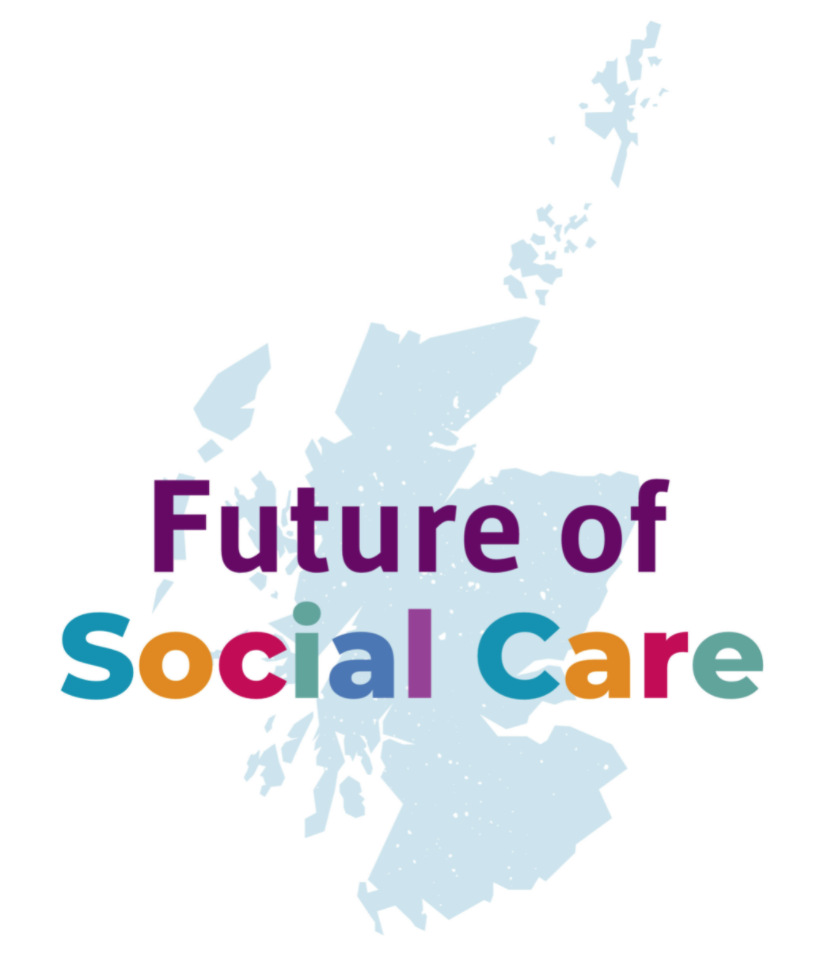Elidh Brown, Partnership Development Lead for tsiMoray reflects on people with lived experience having a direct role in shaping services.

People with lived experience must remain at the core of establishing a new national care service for Scotland, and be recognised as a valuable asset alongside unpaid carers and the care workforce (in its broadest sense, the people who provide care through a range of formal and informal supports).
Voice is important, but it’s about more than voice and being heard, it’s about creating a system where people affected by decisions play a major and direct role in making those decisions.
Drawing on the wealth of lived experience changes the lens through which decisions are made, and could pave the way for a re-designing of the current social care landscape, embedding a move away from command and control, and towards choice and control for individuals and communities.
One way to ensure a strong voice and role in decision making for people with lived experience of long-term conditions, disabilities or who require social care for any other reason, would be to create a formal representative Lived Experience role as a voting member on Integration Joint Boards, and replicate this in any new partnership boards established as part of the way forward.
If voting membership roles for people with lived experience were created, and in addition other roles that are currently disenfranchised from voting were also given status as voting members, including (unpaid) Carer, Third Sector and Patient Representatives, decision making would begin to reflect more directly the aims, aspirations and requirements of people who both receive and deliver formal and informal care and support at home and in our communities.
This is essential for an effective national care service to work, as it will require people to connect, from community groups/organisations, social movements, commissioned and non-commissioned third sector providers, public sector care professionals and other statutory bodies, to listen to each other, and find new ways to work together to support people to design the care and support they choose and need at a local level, including how it is accessed and delivered.
In Moray people from a wide range of organisations regularly connect through the Health and Wellbeing Forum, from those who identify as professionals or practitioners in Health and Social Care, through to people who identify themselves as peers and human beings, whether working on a paid or voluntary basis. Through this process people build relationships and trust.
When public sector partners do not fully commit to this type of mutual process, or recede from this because the shift in power feels uncomfortable, relationships become strained, and trust tarnished. Yet, we know that there is a willingness to work together in a different way, if decision making were re-structured to become fairer, more inclusive and more fully embracing of the subsidiarity principle.
Through safer and more mutual forum or partnership spaces, like the Health and Wellbeing Forum, people become aware of their own lived experience as well as skills and expertise, in a safe environment, with appropriate boundaries in place where everyone can connect as human beings with an appreciation that both themselves and the people they work with and/or support are assets, and not therefore solely defined in terms of need or role as a professional or provider.
Both providers and recipients of care and support begin to experience a sense of mutual respect, as partners in care, willing to learn together and try new things, explore and design new ways forward.
In this way we begin to establish a more flexible and mutual way of working together across systemic boundaries, recognising value in each and every person and the group, resource or service they represent, participate in or benefit from and how this adds to community health and wellbeing.
This mutual approach must be a pre-requisite for the establishment of a national care service that can embrace rather than detract from the principle of subsidiarity, keeping decision making as close to the ground as possible, by resourcing and supporting the development and delivery of care from the bottom up, where people with lived experience are not just heard but supported to be central to service design and active participants in financial decision-making processes.






